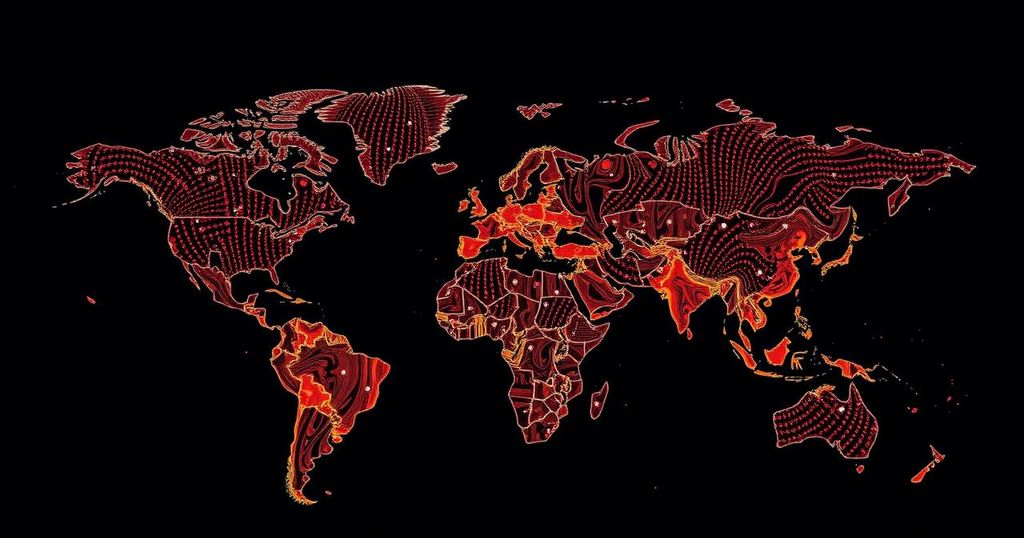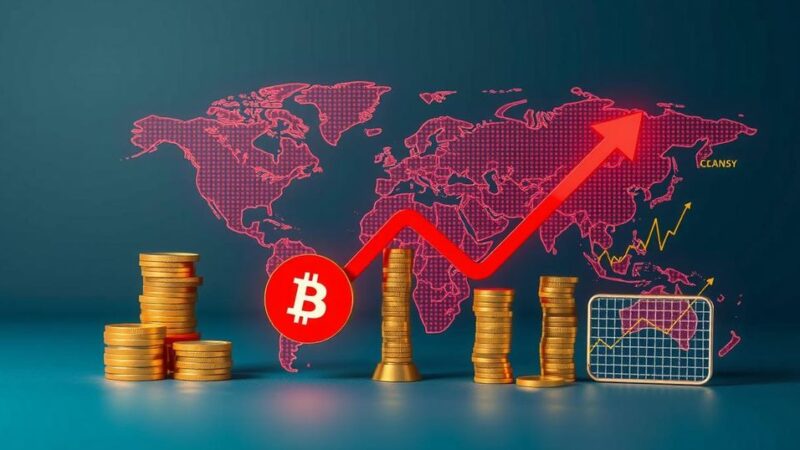This article highlights the recent disclosures of payments made by American oil and mining companies to governments globally, revealing significant financial transactions that emphasize inequalities in resource revenue allocation. Personal narratives from Tutu Alicante illustrate the detrimental impact of these disparities on communities in Equatorial Guinea, shedding light on the larger issue of corruption and inequitable resource management.
In 1996, Tutu Alicante was studying in the United States when his sister, due to an ectopic pregnancy, was taken to a hospital in Equatorial Guinea. Unfortunately, upon her arrival, there was no available power and no attending physician, resulting in her avoidable death. This incident was not an isolated case; in 2014, Alicante’s father suffered a similar fate under identical circumstances. Despite the economic growth spurred by Mobil’s oil discoveries off the coast, this wealth has not translated into improved living conditions for much of the impoverished population of Equatorial Guinea. Alicante, who is currently the executive director of the nonprofit organization EG Justice, shared this poignant narrative during a recent webinar that showcased new securities filings from American oil and mining corporations. These filings, mandated by the U.S. Securities and Exchange Commission (SEC), provide insight into the substantial payments made by these companies to governments around the globe, some of which include their payments to the U.S. federal government. These disclosures amount to tens of billions of dollars in payments from major corporations such as ExxonMobil and Chevron, encompassing various forms including taxes and royalties paid last year. The intent behind establishing these reporting requirements was to curb corruption and inequitable dealings that have contributed to the paradox where natural resource wealth fails to improve the quality of life for many citizens of resource-rich nations. Alicante articulated the gravity of the financial discrepancies faced by his country, emphasizing, “For many of the people listening today, the issues we are discussing here might be about billions of dollars or about numbers. For a majority of people in my country, the issues we are here to talk about are issues of life and death.” For the first time, Equatoguineans can ascertain the specific amount ExxonMobil allocated to their government—$189.2 million in 2022. Comparatively, ExxonMobil reported a staggering total payment of $32 billion across 28 nations, with Chevron disclosing $16.6 billion allocated to 17 countries. This new rule applies to U.S.-based oil, gas, and mining companies while some international corporations, such as Shell, have already adhered to similar regulations elsewhere. The introduced transparency allows civic organizations and the public to compare payments from companies against government-reported data, thereby identifying potential corrupt practices. Aubrey Menard, a senior policy advisor for Oxfam America, pointed out that the information disclosed highlighted possible financial imbalances, stating, “What is revealing in the U.S. is that we are likely getting a bad deal.” For instance, while Exxon produced a significant portion of its oil domestically, it reported paying nearly five times more in taxes to the United Arab Emirates—$5.6 billion—than to the U.S. federal government. Similar patterns emerged for Chevron, which reported considerable contributions to foreign governments despite substantial domestic production. Both Exxon and Chevron argued that tax comparisons are challenging due to differences in taxation structures and local regulations. Zorka Milin, of the Financial Accountability and Corporate Transparency Coalition, expressed that oil companies resisted a more comprehensive reporting process that could have enhanced such comparisons, implying that companies could voluntarily provide that information. Despite these limitations, Milin suggested the disclosed figures could inform discussions on corporate tax reforms, especially as the Biden administration contemplates the repeal of tax benefits for fossil fuel companies, which could yield significant revenue. The advocacy group Global Witness highlighted concerns regarding the inequities embedded in many contracts negotiated with resource extraction firms. The requirement for these disclosures was established through an amendment to the Dodd-Frank Act in 2010, although previous attempts to implement the rule faced legal challenges and political opposition. While the current disclosures lack some desired granular detail, they potentially signify a victory for transparency advocates, providing a crucial platform for citizens in resource-rich nations to engage in dialogues regarding equitable resource management and revenue allocation.
The article addresses the implications of newly disclosed payments made by American oil and mining companies to governments worldwide as mandated by the U.S. Securities and Exchange Commission. This requirement emerged from the Dodd-Frank Act of 2010, aimed at increasing transparency and accountability in the extractive industries. By revealing significant financial transactions, the disclosures are intended to illuminate the economic disparities faced by citizens in resource-rich countries, scrutinizing the often modest returns these nations receive relative to the profits made by corporations. The context surrounding Tutu Alicante’s personal narrative underscores the broader societal impacts of these financial practices.
The recent disclosures by major oil and mining companies serve as a pivotal moment in advocating for transparency and accountability in resource management. With significant payments being reported, it becomes crucial for citizens in resource-rich nations to understand these financial flows and to hold companies and governments accountable for the equitable distribution of natural resource wealth. The contrasting amounts paid in taxes to the U.S. and many foreign countries provoke questions regarding the fairness of the fiscal arrangements, reinforcing the need for reform in corporate taxation practices. Overall, the push for transparency can empower local communities and may pave the way for improved governance and enhanced standards of living for those who have historically been marginalized.
Original Source: insideclimatenews.org







